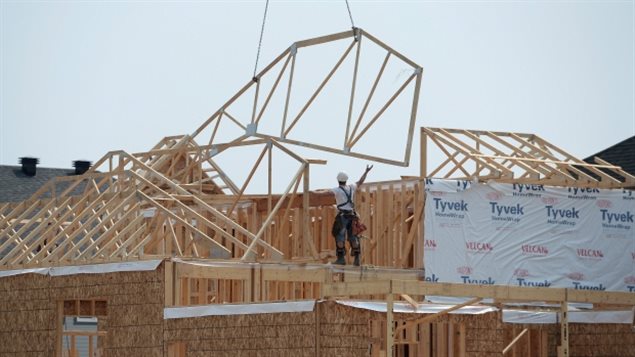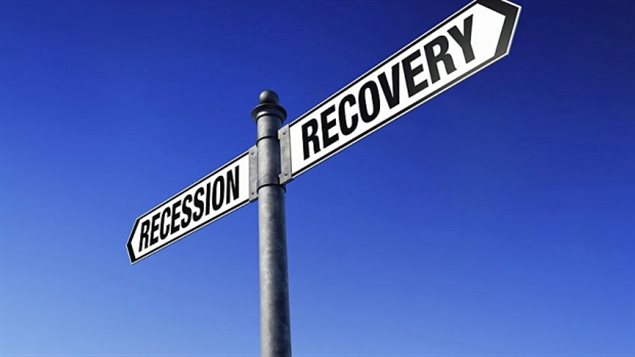A recession in Canada is defined technically as two business quarters in a row (2 x 3 months) where the economy shrank.
Yesterday it was announced that in the first six months of this year, Canada was indeed in a recession, albeit, a very mild one. And yet, it’s been getting a lot of attention.
Mike Veall (PhD) is a professor of economics at McMaster University in Hamilton, Ontario.
Listen
In hard figures, Canada’s economy declined by 0.2 percent in the first quarter (or 0.8 if projected at an annual rate) and 0.1 percent in the second quarter (0.5 projection annual), reduced by an uptick in the economy in June. Because of the declines, it qualifies technically as a recession.
Professor Veall says, even though it’s a very minor recession, Canadian know intuitively that things are not going well, especially those entering the job market,
There was a decline in production industries like manufacturing, oil and gas, but the service sector expanded between April and june by 0.6 percent.
As professor Veall says however, numbers don’t tell the whole picture especially when losses of higher paying manufacturing jobs are offset with service jobs, like store clerk, and fast food cashier.
Real estate, with extremely hot sales in major markets like Vancouver Toronto and Montreal, bolstered by offshore investment, rose by almost 10 percent, while the resource sector declined by 4.5 percent
Professor Veall notes that in this election year various political parties and leaders use various economic figures and indicators in their campaigns, but in reality, the Canadian government at any given time, has only a limited ability to create policies that affect the economy in a major way. He says because of globalization, and especially strong economic ties to the U.S., the situations outside Canada play a large role in Canadian economic performance.

He says that the current federal debt of over $500 billion, is not a serious concern, but that the combined debt of the provinces, which is roughly equal to the federal debt, is, especially the debt load of the two largest and most populous provinces, Ontario and Quebec.
This he says will create tensions and a burden on the federal situation as they seek more money to cope with such things as the major expenditure of health care, which under the current structure, is a provincial jurisdiction.
Compared to other countries, growth of Canada’s Gross Domestic Product of goods and services is the poorest. For example, while Canada’s economy shrank, the US economy grew by 3.7 percent in the second quarter.
The important thing he says, is that when politicians make election promises they ensure that when budget money is being spent, especially in a deficit budget, that it is spent on things that will provide long-term benefit.







For reasons beyond our control, and for an undetermined period of time, our comment section is now closed. However, our social networks remain open to your contributions.